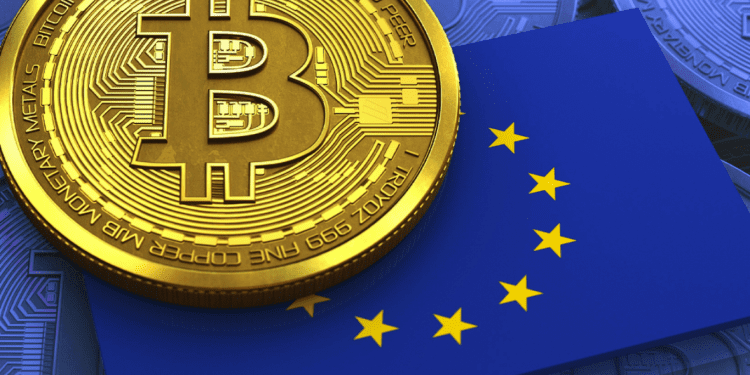- The EU has passed its first-ever legislation to monitor and regulate cryptocurrency asset transfers
- Cryptocurrency transfers now need to comply with the “travel rule,” just like traditional finance
- The legislation includes measures to prevent money laundering, fraud, and other illegal activities, and mandates public disclosure of energy consumption by major service providers
In a landmark move, the European Parliament has approved its first-ever European Union (EU) legislation to monitor cryptocurrency asset transfers. The new legislation is designed to bolster the fight against money laundering and establish standard supervision and consumer protection guidelines for the crypto industry.
All cryptocurrency transactions must comply with the “travel rule,” identical to traditional finance. This means that both parties must record the transaction data, including the source of funds and the recipient.
The legislation will significantly impact transactions that exceed €1000, and they will need to follow the new guidelines for self-hosted wallets. Hosted wallets controlled by cryptocurrency asset service providers will also come under the new regulations. Nevertheless, transfers between individuals or providers are an exception if service providers are not involved.
The European Parliament has also passed common legislation on crypto asset supervision, consumer protection, and environmental safeguards. The MiCA framework will include cryptocurrencies under the statutes that prevent market manipulation and financial crimes.
Along with the legislation to fight against money laundering and establish standard supervision and consumer protection guidelines, the law will include specific measures to curtail money laundering, fraud, and other illegal activities. ESMA will make a public register of non-compliant crypto asset service providers, and significant providers must disclose their energy consumption to tackle the high carbon footprint of cryptocurrencies.
Binance CEO, Changpeng Zhao, took to Twitter to express his opinion on the matter, calling the vote a “customized regulation for the crypto sector within one of the world’s largest markets.” He added that the move would provide regulatory clarity to the European cryptocurrency asset industry.
The Council will now have to approve the new legislation, which will be published in the EU Official Journal and implemented approximately three weeks later. With this new legislation, the EU is taking a significant step toward regulating the cryptocurrency industry and safeguarding consumers from fraud and other illegal activities.
EU Parliament Passes the World’s First Standard Framework for Crypto Regulation
The world’s first-ever framework of rules created to regulate the crypto industry has been passed by European Parliament lawmakers. In a significant move for investors and enthusiasts, the regulations outline the new requirements imposed on several players in the industry, including crypto platforms, token issuers, and traders. The requirements will center around operational transparency, disclosure, supervision, and authorization of transactions.
According to a statement released by the EU parliament last week, platforms will be compelled to divulge information to their consumers about the risks associated with their operations. Token sales, as well, will come under strict regulatory control.
Stringent requirements have also been imposed on stablecoins like Tether and Circle’s USDC. These virtual coins, however, will be mandated to maintain substantial reserves to support possible redemption requests in case of mass withdrawals.












